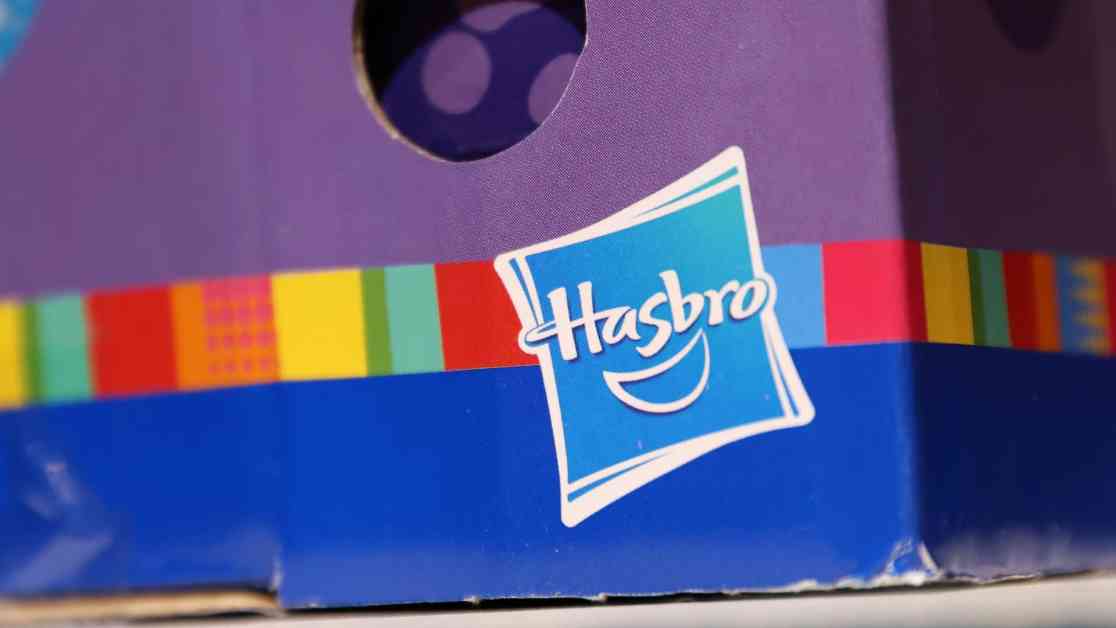Toy and gaming giant Hasbro is implementing strategic measures to counteract the impacts of Chinese tariffs, reflecting a broader industry trend. Hasbro’s Chief Financial Officer Gina Goetter recently addressed the company’s 2025 guidance during its fourth-quarter earnings call, highlighting the anticipated effects of U.S. tariffs on China, Mexico, and Canada. This includes adjusted EBITDA projections ranging from $1.1 billion to $1.15 billion for 2025, compared to $1.06 billion in 2024. Hasbro plans to mitigate these effects by leveraging its robust supply chain and exploring potential pricing adjustments, as outlined in a recent news release.
In response to escalating tariffs, Hasbro is actively shifting its manufacturing operations away from China. Goetter revealed that the company aims to reduce the volume of U.S. toys and games originating from China from 50% to less than 40% within the next two years. While Hasbro does not rely heavily on imports from Mexico and Canada, Goetter emphasized that the primary focus lies on navigating the challenges posed by Chinese tariffs.
CEO Chris Cocks echoed Goetter’s sentiments, expressing confidence in Hasbro’s ability to navigate the tariff landscape while maintaining steady performance in the industry. He highlighted the resilience of trading cards and building blocks as key product categories expected to lead the way for Hasbro. Cocks also emphasized the strength of the company’s licensing business, noting its minimal exposure to tariff-related disruptions.
In a strategic move, Hasbro announced a licensing partnership with Mattel to introduce Play-Doh versions of Mattel’s iconic Barbie dolls. This collaboration aims to offer children a unique creative experience, enabling them to unleash their inner fashion designer through Play-Doh creations inspired by Barbie’s signature style. Cocks emphasized the innovative features of Play-Doh Barbie, including intricate ruffles, bows, and realistic fabric textures, designed to captivate young audiences.
Following these developments, shares of Hasbro surged approximately 10% in morning trading, reflecting investor confidence in the company’s strategic initiatives and future outlook. The positive market response underscores the significance of proactive measures undertaken by Hasbro to navigate the evolving tariff landscape and drive innovation in the toy and gaming industry.
Hasbro’s financial performance in the fourth quarter exceeded Wall Street expectations, with adjusted earnings per share reaching 46 cents compared to the anticipated 34 cents. The company reported revenue of $1.1 billion, outperforming the projected $1.03 billion. Despite a 15% decline in fourth-quarter revenue from the previous year, Hasbro’s full-year 2024 revenue stood at $4.14 billion, reflecting a 17% decrease from 2023. The company attributed this decline to the divestiture of its eOne film and TV business, which was sold to Lionsgate in December 2023.
On a positive note, Hasbro’s digital and licensed gaming revenue demonstrated significant growth, increasing by 35% to $132 million in the fourth quarter compared to the previous year. The full-year 2024 revenue for digital and licensed gaming surged by 22% to $471.7 million, with the mobile game Monopoly Go! contributing $112 million in revenue for the year. Despite reporting a net loss of $26.5 million for the fourth quarter, Hasbro’s adjusted earnings per share exceeded expectations, signaling a resilient performance amid challenging market conditions.
As Hasbro continues to navigate the complexities of global trade and market dynamics, the company’s strategic initiatives and innovative collaborations position it for sustained growth and resilience in the evolving landscape of the toy and gaming industry. Stay tuned for further updates on Hasbro’s transformative journey and industry leadership.



















